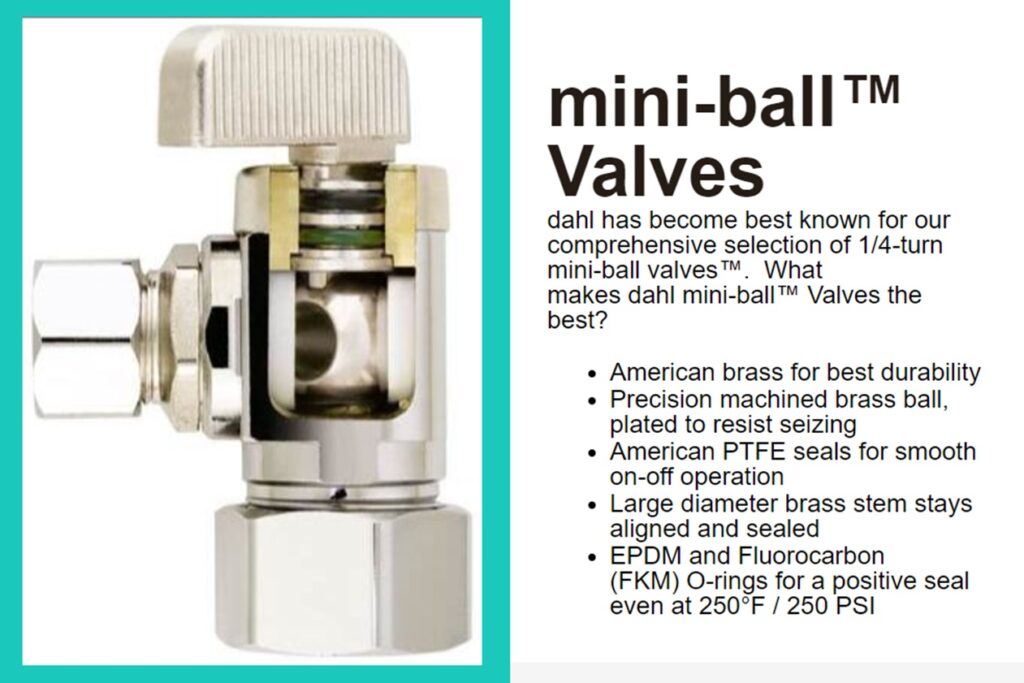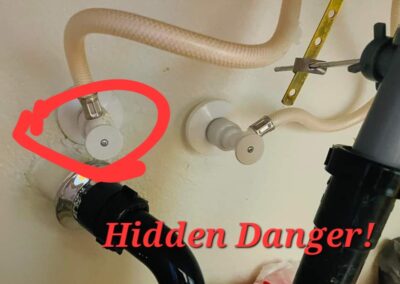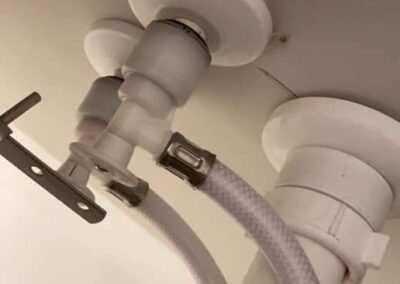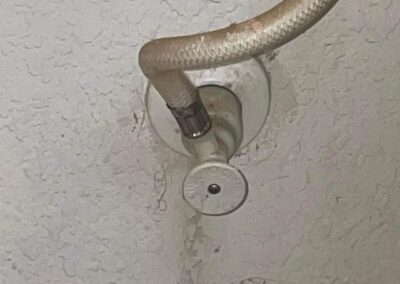Angle Stops & Flexible Water Lines
Is danger lurking behind your toilet or under your sink?
Let’s Learn about it!
When was the last time you changed the flexible water lines and angle stops to your plumbing fixtures? Did you know flexible hoses are recommended to be replaced every 5-10 years and could be a hidden danger that could potentially cause flooding in your home? This applies to bathroom faucets, toilets, and sometimes kitchen faucets. The hoses are connected to angle stop shut off valves that should also be replaced or serviced every 10-20 years for optimal preventative maintenance.
Many newer homes from year 2000+ feature cheap plastic shut off valves with non-replaceable flexible water hoses. This means that when the water hose goes bad the whole valve and hose need to be completely replaced. These valves tend to have a bad reputation due to their various flaws, unreliability, and high rate of failure. Since they are plastic, they’re more prone to cracking due to old age or accidental damage. Additionally, their internal moving components wear down much faster as opposed to a more traditional metal shut off valve, leading to not being able to fully shut off the water to a fixture, a crucial feature in the event of an emergency.
When replacing your valves there are many options out there on the market. A key thing to note when looking into replacing your valves is how long the manufacturer rates the valve for use. Also known as the recommended lifespan. This can vary from 5-50 years, so it’s a very important detail to consider. At McCray and Sons Home Services we install and highly recommend Dahl™ mini-ball valves. They feature a threaded inlet for hose interchangeability, and a ¼ turn shut off design, for easy shut off in emergency situations. Dahl™ valves are made in Canada from 100% American-made brass and are backed with a lifetime manufactures warranty – one of the only brands that does this. Similar valves that you can purchase at Home Depot or Lowes only carry warranties for around 10-25 years.
Another thing to consider when shopping for valves is the type of water piping in your home or property. Houses can are typically plumbed with copper, galvanized, pex, or sometimes CPVC. It is important to know which material you are dealing with so that you can purchase the correct type of valve and bring the right tools for your project. Each material will have different methods of adjoining the valve to the pipe, with varying degrees of strength and reliability.
Failure of either the valve or the hose can lead to flooding and water damage in your home or property. A smaller repair like this, if ignored, can easily turn into a very costly water damage renovation depending on the severity of the failure. This is why regular upkeep and preventative property maintenance is an essential part of being a home owner.
Warning signs your valve may be bad, or going bad include signs of leaks, low water pressure, and difficulty turning off water. McCray and Sons specializes in plumbing! Call us today for an estimate! 916.258.2190



